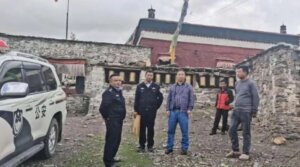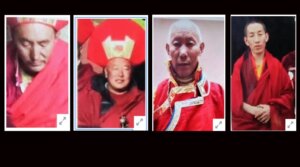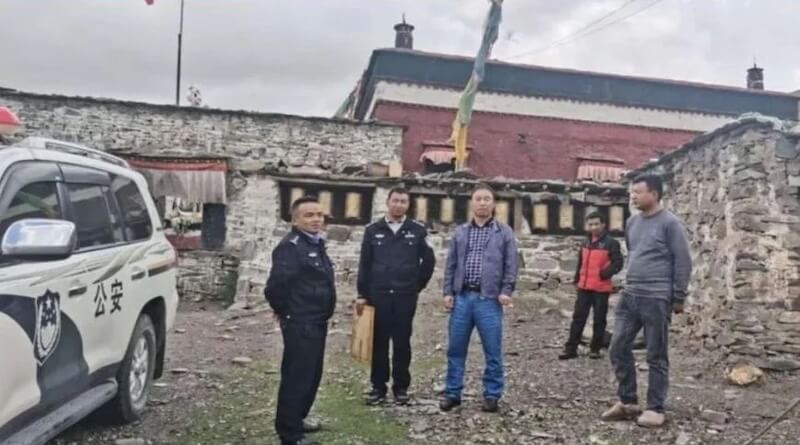Tibetan monks harshly sentenced for dubious offences: HRW report

DHARAMSALA, 7 July: Four Tibetan Buddhist monks have been sentenced to up to 20 years in prison for “dubious offenses”, Human Rights Watch said.
The four monks, Choegyal Wangpo, Lobsang Jinpa, Norbu Dondrup, and Ngawang Yeshe from Tengdro monastery were sentenced to 20, 19, 17, and 5 years respectively, the right groups said in its 61-page report titled ‘Prosecute Them with Awesome Power’: China’s Crackdown on Tengdro Monastery and Restrictions on Communications in Tibet.”

The New York-based rights group stated in its report detailing for the first time, the Chinese government’s “crackdown on Tibetan monks in the little-known Tengdro monastery in Shekar town, Tingri county in the traditional Tibetan province of U-Tsang that “the sentences reflect increasing pressure on local officials to restrict online communications and punish peaceful expression as a security threat.”
In September 2019, police in Lhasa, the Tibetan capital, found private messages on a cell phone lost by Choegyal Wangpo, one of the monks from Tengdro monastery.
According to the report, “Lhasa police immediately detained Choegyal Wangpo, beat him severely, and interrogated him.”
“The monks were held for the following year in Nyari prison near Shigatse, the municipal seat that oversees Tingri.”
The monks the report said were “believed to have been held on suspicion of having exchanged messages with other Tibetans abroad, of having contributed to the earthquake relief sent to Tibetans at the sister monastery in Nepal, or of having possessed photographs or literature related to the Dalai Lama.”
According to the report, 20 monks detained in or just after the raid, including monks Ngawang Samten, 50, Lobsang, 36, and Nyima Tenzin, 43, were held without trial for several months in the nearby Tingri county town.
The detained monks were reported “to have been released after making pledges not to carry out any political acts but were not allowed to rejoin the monastery.
According to the report, even though sending messages abroad or making humanitarian donations does not violate Chinese law, the police upon discovering several messages he exchanged with Tibetan monks living in Nepal, including records of donations after the 2015 Nepal earthquake responded by raiding the monastery which the report said: “resulted in multiple arrests, a suicide, and, in 2020, a secret trial of four monks.”
Sophie Richardson China director at Human Rights Watch has stated that “the unprecedented sentences of the Tengdro monks reflect a ‘perfect storm’ in Tibet,” and that “the Chinese government’s assumption that Tibetan monks and nuns are potential subversives, the heightened border security, and increased restrictions on online communications and religious donations all combined to create a shocking miscarriage of justice.”
The report further stated that the arrest of the monks followed more arrests of Tibetans as the Chinese authorities held meetings for officials both in the Tibet Autonomous Region and other Tibetan areas to threaten residents against contacting relatives outside of China.
“The horrific treatment of the Tengdro monks points to the Chinese government’s pressure on officials in Tibet to find and punish cases of political subversion – even if the alleged subversion is a figment of their imagination,” Richardson has said.





